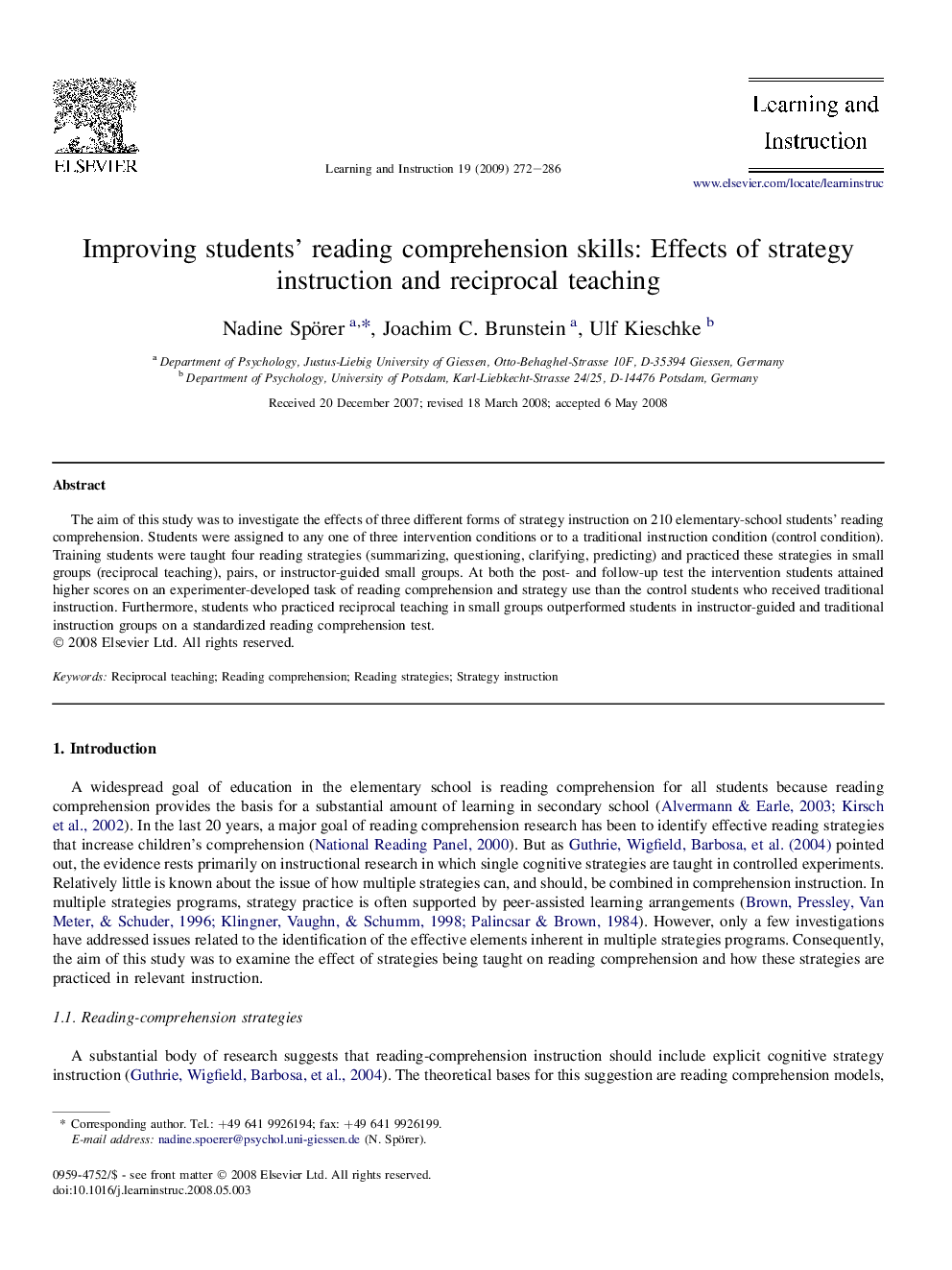| Article ID | Journal | Published Year | Pages | File Type |
|---|---|---|---|---|
| 365889 | Learning and Instruction | 2009 | 15 Pages |
The aim of this study was to investigate the effects of three different forms of strategy instruction on 210 elementary-school students' reading comprehension. Students were assigned to any one of three intervention conditions or to a traditional instruction condition (control condition). Training students were taught four reading strategies (summarizing, questioning, clarifying, predicting) and practiced these strategies in small groups (reciprocal teaching), pairs, or instructor-guided small groups. At both the post- and follow-up test the intervention students attained higher scores on an experimenter-developed task of reading comprehension and strategy use than the control students who received traditional instruction. Furthermore, students who practiced reciprocal teaching in small groups outperformed students in instructor-guided and traditional instruction groups on a standardized reading comprehension test.
